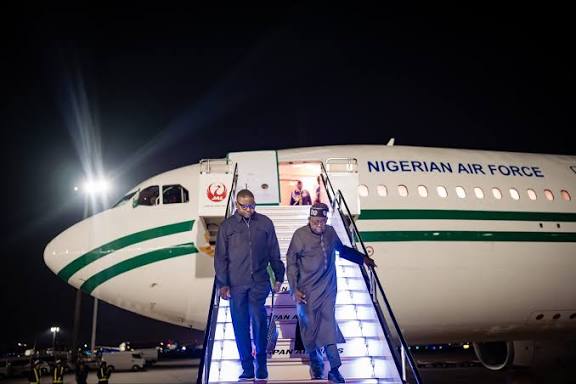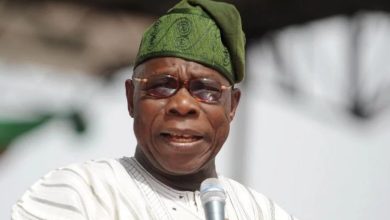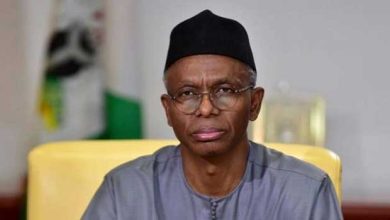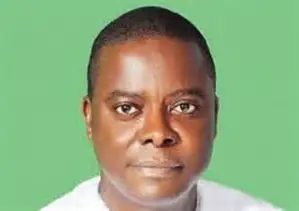President Tinubu returns to Abuja after counterterrorism discussions in Rome

President Bola Tinubu arrived in Abuja on Saturday following his participation in the Aqaba Process Heads of State Meeting held in Rome, Italy, a key international summit aimed at enhancing global cooperation in the fight against terrorism and violent extremism.
The President’s return was confirmed in an official statement issued by his spokesperson, Mr. Bayo Onanuga, who described the engagement as “a critical step forward in Nigeria’s strategic counterterrorism diplomacy.”
The Aqaba Process, an initiative spearheaded by King Abdullah II of Jordan since 2015, serves as a unique platform bringing together political leaders, security chiefs, and global experts to foster collaborative strategies against terrorism.
The 2025 edition, co-hosted by Jordan and Italy, convened on Wednesday in Rome and featured a robust agenda centered on strengthening regional security, with a special emphasis on West Africa, a region increasingly vulnerable to insurgent threats and cross-border extremism.
President Tinubu joined an array of world leaders at the summit, including King Abdullah II, Italian Prime Minister Giorgia Meloni, and the Presidents of Chad, Togo, Paraguay, and Sierra Leone.
Algeria’s Upper House President, Azouz Nasri, also participated, along with delegations from Côte d’Ivoire, Kazakhstan, Mauritania, Senegal, and Uzbekistan.
The event brought together not only political leaders but also high-level security officials, international envoys, and representatives of global counterterrorism agencies.
During the summit, closed-door sessions delved into mechanisms to improve intelligence sharing, close operational gaps, and enhance preventative frameworks.
The process is guided by three strategic pillars: prevention, coordination, and the enhancement of field-level counterterrorism responses.
In addition to the main summit proceedings, President Tinubu held a series of bilateral meetings aimed at reinforcing Nigeria’s foreign partnerships.
Among these was a discussion with Italian Prime Minister Giorgia Meloni, where the two leaders explored avenues for deepening economic and security collaboration.
The President also engaged with Massad Boulos, a senior adviser to the U.S. government on Arab-African affairs, with whom he discussed regional stability and counter-extremism initiatives.
President Tinubu also visited the Vatican, where he met with Cardinal Pietro Parolin, the Vatican’s Secretary of State.
The two leaders discussed issues of interfaith harmony and Nigeria’s ongoing efforts to combat religious intolerance.
According to the Presidency, Tinubu used the opportunity to address global misconceptions regarding religious freedom in Nigeria and reiterated the government’s commitment to fostering peaceful coexistence across its diverse population.
Since its inception, the Aqaba Process has convened over 30 times in various formats from high-level leader summits to expert roundtables reinforcing its reputation as a linchpin in international counterterrorism dialogue.
President Tinubu’s attendance marked Nigeria’s continued engagement in multilateral security cooperation, underscoring the country’s determination to play a central role in global peace and stability.



